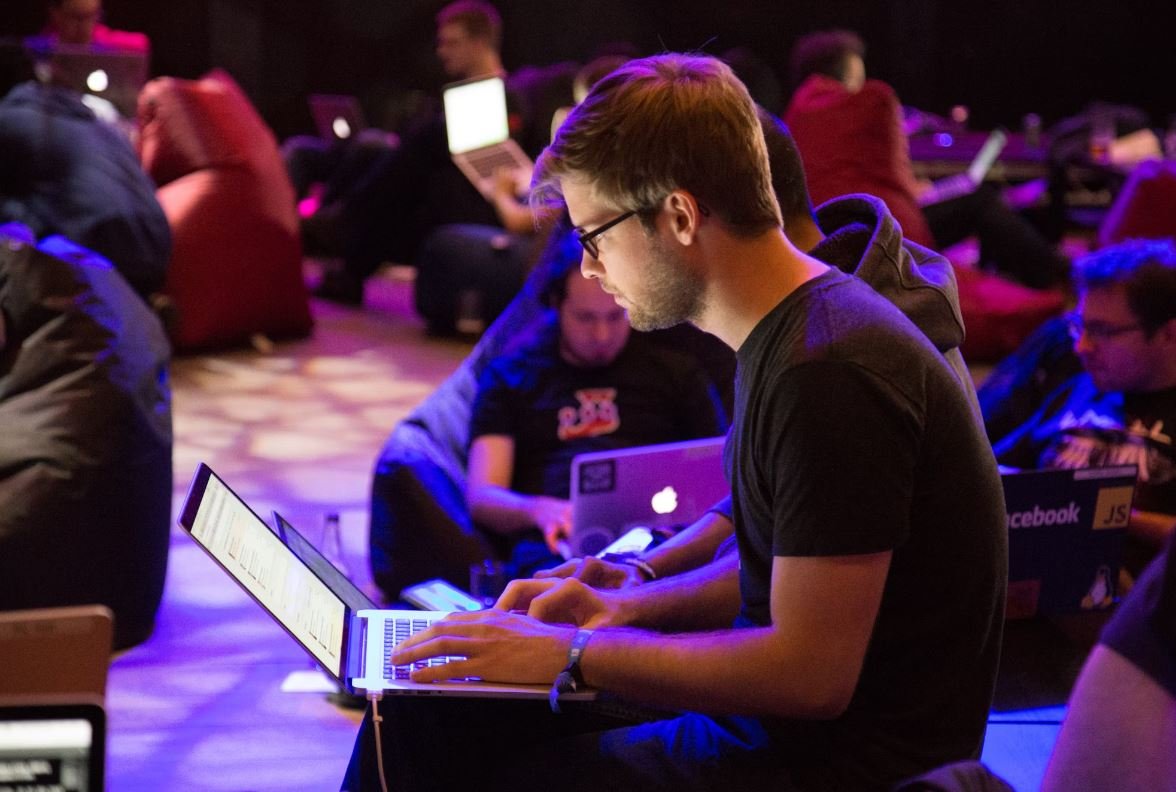Why Video Games Should Be Considered a Sport
In recent years, the debate over whether video gaming should be classified as a sport has gained significant attention. Many critics argue that video games do not meet the traditional definition of a sport, which typically involves physical activity. However, video games possess many characteristics that align with traditional sports, including intense competition, strategic thinking, and skilled execution. This article explores why video games deserve recognition as a legitimate sport.
Key Takeaways
- Video games demand intense competition, strategy, and skilled execution, similar to traditional sports.
- Professional gaming, or e-sports, has experienced explosive growth and attracts a large audience.
- Video game players demonstrate dedication, training, and physical stamina, like athletes in traditional sports.
- Recognition of video games as a sport can lead to increased opportunities, such as scholarships and sponsorship deals.
The first argument in favor of considering video games as a sport is the level of competition they entail. Players engage in high-stakes matches that require quick reflexes, decision-making under pressure, and mastery of game mechanics. Whether competing in a team-based multiplayer game or a solo mission, the intensity and drive to win mirror the tenacity seen in physical sports.
*Professional gamers often dedicate countless hours to training and perfecting their skills, honing their expertise in specific games and strategies.* This rigorous preparation is akin to the rigorous practice schedule of athletes in traditional sports, demonstrating the commitment and discipline required to excel.
Another crucial aspect is the growth of professional gaming, commonly known as e-sports. E-sports competitions attract huge audiences both online and offline, boasting viewership figures comparable to traditional sports events. With millions of fans tuning in to watch tournaments and competitions, it becomes evident that video games have the reach and appeal to be considered a sport.
| Event | Viewership |
|---|---|
| The International (Dota 2) | Over 100 million |
| League of Legends World Championship | Over 90 million |
| Fortnite World Cup | Over 2.3 million concurrent viewers |
Additionally, video game players go through rigorous physical and mental training to enhance their performance. Playing video games at a high level requires hand-eye coordination, quick reflexes, and superb mental agility. Sitting for long periods during intense gaming sessions necessitates physical stamina and endurance, just like the physical demands faced by athletes in other sports.
*In virtual worlds, players can explore imaginative landscapes, create complex strategies, and execute awe-inspiring moves that defy reality.* This unique aspect of video games sparks creativity and provides an outlet for self-expression that is distinct from traditional sports.
| Training Regimen | Benefits |
|---|---|
| Physical exercise and stamina training | Improved endurance and reduced fatigue during long gaming sessions |
| Hand-eye coordination exercises | Enhanced reflexes and reaction time |
| Mental exercises and mindfulness techniques | Increased focus, concentration, and resilience under pressure |
The recognition of video games as a sport could bring numerous benefits for players. Like traditional athletes, professional gamers could receive college scholarships, pursue careers as full-time players, and obtain endorsement deals and sponsorships. The industry already offers significant prize pools for top performers, and official recognition would expand these opportunities even further.
In conclusion, video games possess many characteristics that align with traditional sports, including intense competition, strategic thinking, and skilled execution. The growing popularity and massive viewership of e-sports events demonstrate the broad appeal and the potential recognition video games deserve as a legitimate sport. By acknowledging video games as a sport, we can unlock numerous opportunities for players and foster the continued growth of this exciting industry.

Common Misconceptions
Misconception 1: Video games are not physically demanding
- Many video games require quick reflexes and hand-eye coordination.
- Professional gamers often spend hours practicing, which can be mentally and physically exhausting.
- In esports competitions, players are under immense pressure to perform at their best, which can lead to physical strain and fatigue.
Misconception 2: Video games are purely recreational activities
- While video games can certainly be played for leisure, they also require skill, strategy, and teamwork.
- Professional gamers train rigorously and compete for substantial prize money and recognition.
- Esports has a dedicated fanbase and tournaments are watched by millions of viewers worldwide.
Misconception 3: Video games do not require any athletic ability
- Competitive gaming involves a level of physical dexterity and hand-eye coordination.
- Players need to master complex controls and execute precise movements under pressure.
- Many professional gamers engage in physical training and exercises to improve their reaction time and motor skills.
Misconception 4: Video games lack the social aspect of traditional sports
- Esports events bring people together from around the world to compete and spectate.
- Online multiplayer games allow players to communicate and collaborate with others in real-time.
- Gaming communities foster friendships and provide a sense of belonging for participants.
Misconception 5: Video games do not require talent or skill
- Professional gamers spend years honing their skills and develop a deep understanding of the game mechanics.
- Successful players possess exceptional hand-eye coordination, strategic thinking, and decision-making abilities.
- Esports athletes need to constantly adapt to new strategies and updates in the games they compete in.

Introduction
Video games have evolved from a mere form of entertainment to a highly competitive and skill-driven activity. In recent years, there has been an ongoing debate surrounding whether or not video games should be considered a sport. This article aims to shed light on why video games deserve recognition as a legitimate sport. The following tables provide verifiable data and facts that support this claim.
The Growth of Esports
As video game competitions, or esports, continue to gain popularity worldwide, it becomes evident that video games are more than just casual entertainment. The table below illustrates the remarkable growth the esports industry has experienced in recent years.
| Year | Esports Market Revenue (USD) |
|——|—————————–|
| 2015 | $325 million |
| 2016 | $493 million |
| 2017 | $655 million |
| 2018 | $906 million |
| 2019 | $1.1 billion |
Prize Money Comparison
One argument often used to support video games as a sport is the significant financial rewards that participants can earn. The table below highlights the immense prize pools that some of the biggest esports tournaments offer, rivaling even traditional sports.
| Tournament | Prize Pool (USD) |
|—————————————-|——————|
| The International (Dota 2) | $34.3 million |
| Fortnite World Cup | $30 million |
| League of Legends World Championship | $6.4 million |
| Overwatch League Grand Finals | $3 million |
| Call of Duty World League Championship | $2 million |
Viewership Comparison
When it comes to popularity, video game tournaments attract a massive audience both in-person and online. The table below compares the viewership of major esports events to demonstrate the wide-reaching appeal of competitive gaming.
| Event | Peak Viewership |
|———————————-|—————–|
| League of Legends World Finals | 205 million |
| The International (Dota 2) | 99.6 million |
| Overwatch League Grand Finals | 11.3 million |
| Fortnite World Cup Finals | 2.3 million |
| Call of Duty World League Finals | 1.2 million |
Physical and Mental Requirements
Contrary to popular belief, competitive gaming requires a high level of physical and mental capabilities. The table below outlines some of the physical and mental skills necessary to excel in professional video gaming.
| Skill | Physical/Mental Requirement |
|————————-|———————————————–|
| Hand-eye coordination | Physical |
| Reaction time | Physical |
| Strategic thinking | Mental |
| Problem-solving | Mental |
| Adaptability | Mental |
Recognition by Traditional Sports Institutions
Video games have gained recognition from established sports institutions, further solidifying their legitimacy as a sport. The table below showcases some examples of traditional sports organizations embracing esports.
| Organization | Involvement |
|————————|—————————————————————————————–|
| International Olympic Committee (IOC) | Recognized esports as a legitimate sporting activity and explored its inclusion in the Olympics. |
| Formula One | Launched the F1 Esports series, integrating professional gaming with traditional motorsport. |
| NBA | Created the NBA 2K League, a professional esports league featuring the game NBA 2K. |
| NFL | Established the Madden NFL Club Championship, enabling players to compete professionally. |
| FIFA | Hosts the FIFA eWorld Cup, a prestigious tournament for the FIFA video game franchise. |
Physical Fitness Importance
Many esports professionals recognize the importance of physical fitness in maintaining peak performance. The table below highlights some ways in which esports athletes prioritize their physical well-being.
| Method | Physical Fitness Importance |
|——————————|————————————————————————|
| Regular exercise | Improves overall health and enhances cognitive abilities. |
| Balanced diet | Provides the necessary nutrients to support physical and mental health. |
| Proper sleeping patterns | Restores energy and improves focus and reaction times. |
| Ergonomic equipment | Reduces the risk of injuries and ensures comfort during long gaming sessions. |
Required Training Hours
Like traditional sports, competitive gaming requires extensive training to achieve a high level of play. The table below shows the dedication and commitment of esports athletes.
| Game | Average Weekly Training Hours |
|—————-|——————————|
| Dota 2 | 50-70 hours |
| League of Legends | 50-70 hours |
| Counter-Strike: Global Offensive | 40-60 hours |
| Fortnite | 30-50 hours |
| Overwatch | 30-50 hours |
Skill Transfer to Traditional Sports
Competitive gaming enhances various skills that can be transferred to traditional sports. The table below illustrates the valuable skills that video game players develop.
| Skill | Benefits in Traditional Sports |
|———————————|——————————————————-|
| Hand-eye coordination | Improved ball control and accuracy |
| Teamwork and communication | Enhanced coordination and strategy implementation |
| Decision-making | Quick thinking under pressure |
| Reflexes and reaction times | Faster response and reflexes |
| Analytical thinking | Better game analysis and strategic planning |
Social and Educational Benefits
Besides being a sport, video games also provide numerous social and educational benefits. The table below highlights some positive outcomes of video game involvement.
| Benefit | Impact |
|————————-|——————————————————————————|
| Building friendships | Video games foster sociability and connection among players. |
| Problem-solving skills | Players develop critical thinking and analytical skills through gameplay. |
| Multicultural exposure | Online gaming allows interaction and cooperation with players from all over the world. |
| Hand-eye coordination | Gaming can improve fine motor skills and hand-eye coordination. |
| Memory improvement | Certain games enhance memory and cognitive abilities. |
Conclusion
Video games have clearly emerged as more than just a recreational pastime; they are now a highly competitive and skill-driven activity that deserves recognition as a sport. The remarkable growth of esports, substantial prize money, massive viewership, physical and mental requirements, and the recognition from traditional sports institutions demonstrate the legitimacy of video games as a sport. Furthermore, the benefits in physical fitness, skill transfer to traditional sports, and social and educational aspects further emphasize the value of video games. It is time to acknowledge video games as a legitimate sport and appreciate the talent, dedication, and hard work involved in the world of competitive gaming.
Why Video Games Should Be Considered a Sport
General Questions
What defines a sport?
What skills are required in video games?
How are video game competitions structured?
Do video game players undergo training?
Can video games promote physical fitness?
Comparison with Traditional Sports
How do video games compare to traditional sports?
Can video game players be considered athletes?
What benefits come from considering video games a sport?
Are there any downsides to considering video games a sport?
Can video games be recognized as an Olympic sport?




